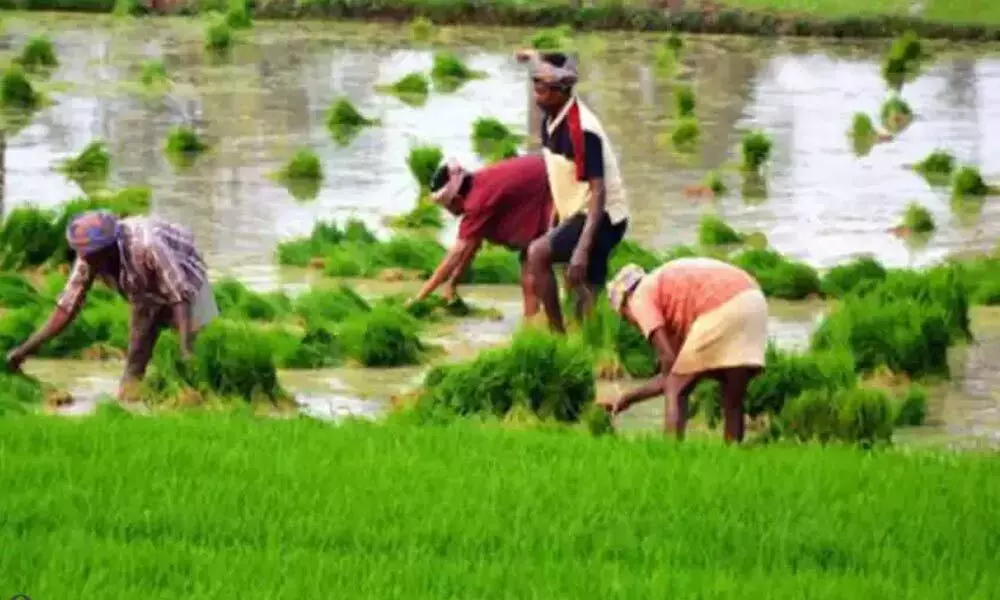Time to adopt an appropriate agriculture policy

Time to adopt an appropriate agriculture policy
“We have to take our agriculture out of the lab of chemistry and connect it to the lab of nature", Prime Minister, Narendra Modi said at a farmers National Conclave on Natural Farming recently.
"We have to take our agriculture out of the lab of chemistry and connect it to the lab of nature", Prime Minister, Narendra Modi said at a farmers National Conclave on Natural Farming recently. We are increasingly turning towards nature as a solution to several ills dogging the planet and also its inhabitants. One step at a time will not do. It requires a complete transformation with some planning.
If we don't respect the past knowledge there is little for us to change. Natural farming will not only help the farmers but also the others. As the Prime Minister pointed out it is not about lifestyle as we generally refer to, but about 'lifestyle for environment'. Chemical fertilizers and pesticides have played havoc with our life for a long time. Adaptation of agriculture according to new requirements and new challenges of the future is essential if India is to rewrite history. No doubt fertilisers and pesticides played an important role in the Green Revolution but the dangers must also be borne in mind. In fact, this change that the Prime Minister talked about would benefit 80 per cent of the farmers themselves who fall under the category of small farmers with less than two hectares of land holdings in the country.
The inability of Indian agriculture to meet the demand for food in the country during the two and half decades immediately after independence had been a matter of concern at those times. The system of our agriculture based on the traditional knowledge and practices handed down from generation to generation could not produce enough to feed the increasing population. The ignominy of our dependence for food on the western developed nations and the politics of food aid practiced by them added to our determination to be self-sufficient in food production by modernising agriculture. The green revolution fulfilled our aspirations by changing India from a food importing to a food exporting nation.
However, the achievement was at the expense of ecology and environment and to the detriment of the well-being of the people. The agriculture system adopted from the West has started showing increasing unsustainability and once again the need for an appropriate method suitable to our requirements is being felt.
The practice of organic farming, said to be the best known alternative to the conventional method, also originated in the west, which suffered from the ill effects of chemical agriculture. However, organic farming is based on the similar principles underlying our traditional agriculture. Organic agriculture aims at the human welfare without any harm to the environment which is the foundation of human life itself.
An appropriate national agriculture policy, giving a prominent place to organic farming addressing the issues related to its coverage, financial support during the conversion period, creation of linkages among the farmers, processors, traders and consumers, inspection and certification of organic products and increasing the public awareness of the benefits of organic agriculture along with the ill effects of the conventional system, should be designed.
This must be followed by concrete action on the ground if we do not want to miss the far reaching changes all over the world heralded by the organic farming movement. Change the farm practices, not the laws.











